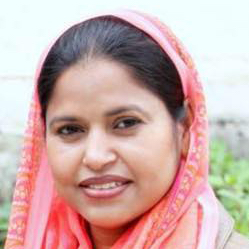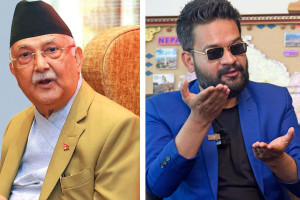Columns
Will the new commissions go the way of the transitional justice bodies?
There is no alternative to making appointments in such commissions transparent and fair..jpg&w=900&height=601)
Mohna Ansari
The two transitional justice commissions—the Truth and Reconciliation Commission (TRC) and the Commission of Investigation on Enforced Disappeared Persons (CIEDP)—were established with the hope that the war-era victims would get a sense of closure. But justice still eludes the victims of the violent Maoist insurgency. I make no apology for returning to these fundamental issues once again because the authorities have failed to learn from their mistakes.
Nepal is full of commissions that are yet to become fully functional. Some of these include The National Women Commission, National Dalit Commission, National Inclusion Commission, Madhesi Commission, Tharu Commission, Muslim Commission and Indigenous Nationalities Commission. The transitional justice bodies share fundamentals with the newly established commissions mentioned above; exclusion is still a significant issue since our society at large is still discriminatory.
But be it advancing transitional justice initiatives or making other commissions serviceable, at the heart of this inaction is the lack of trust between the state and its citizens. There also seem to be differences in the role of human rights and how they are perceived by broader civil society.
The effectiveness of all these commissions depends on their credibility. The public must feel assured that the contributions made by these commissions can pave the path to peacebuilding—something we have been engaged in since long but with no end in sight.
One of the main reasons for the conflict was to break the notion that the state and its politicians are benevolent. But human rights activists and civil society members can make a discernible contribution in reinstalling that trust—the belief that every citizen will be treated fairly by state bodies which have an impact on their lives.
The latest test of the government’s goodwill is the case of the new commissions. There are many crucial challenges they share with the National Human Rights Council and transitional justice bodies. They can only play their role and take their place in envisaging a new idea for Nepal if they are independent. What’s more, these institutions must be perceived as being independent by the wider public. And this can happen only when the chairpersons and officers are selected for their competence; not according to their party affiliation or loyalty.
Various media reports have mentioned that the delays in the formation of the TRC and CIEDP are due to behind-the-scenes fights between political forces to have ‘their’ members appointed. The sad thing about this unseemly spat is that it taints even the qualified and morally decent candidates. People then assume that appointments are made on party quotas, not with regard to merit and competencies of the respective candidates. Such generalisation tends to discredit the institutions, sometimes unfairly.
But there is no alternative to making appointments in such commissions transparent and fair, which is possible only with the active participation of the concerned individuals. In other words, those sections of society who are the supposed beneficiaries of such bodies. The new bodies need to have adequate resources as well as administrative and financial autonomy so that they are not seen to be dependent on ministries and vulnerable to manipulation by them.
Besides, there are two further crucial issues.
The public must know the purpose of the commissions—what they can and can’t offer to the communities they are supposed to support. People will not approach the commissions if their capacities are not clear to them. And commissions without participating stakeholders are unlikely to contribute to improving society.
More importantly, these multiple commissions must have inter-commission linkages and should be able to refer cases to each other as appropriate. For example, the case of a Madhesi Dalit Woman whose rights have been violated should not get stuck in either the Madhesi, Dalit or Women’s Commission but should be promptly referred, in a timely fashion, to the National Human Rights Council, which is the body that has investigative powers and capacities.
There is a lot of work to be done in terms of public education, but also in bringing all the commissions together to discuss and reconcile overlapping or conflicting mandates. These commissions also need to come together to agree on their working relations practically and efficiently. There is no place for competition, only cooperation.
These discussions should also be taken as an opportunity to confront common problems together, problems of inadequate resources, lack of staff and budgets, interference and the difficult task of finding effective working methods.
Sadly, yet again, the government has put resolving these urgent issues on the back burner. This leaves the public to think that the government has politicised the appointment of the TRC and CIEDP. Such thought then leaves open spaces allegations that appointments to these bodies are first and foremost opportunities for patronage and political influence, as rewards for party loyalty.
This is another missed opportunity for our political leaders to gain the confidence of the public, their electorate, by setting up these new bodies in a clear act of good faith. The critical failures of the TRC and CIEDP, the reason for four wasted years, was the combination of an inadequate mandate/legal basis and opaque appointment procedures that created doubts in public opinion.
The new constitutional commissions provide yet another opportunity to tackle the long-delayed issues of social justice for our marginal communities. To succeed, the process must start on the right foot, with transparent appointments.
It is imperative to be clear on one thing: the creation of these inclusion commissions is just a start; they have to be given the means to succeed. We cannot allow the commissions’ creation to be seen as declaring ongoing structural discrimination as closed, dealt with by merely setting up yet another mechanism that may or may not do anything helpful at all.
***
What do you think?
Dear reader, we’d like to hear from you. We regularly publish letters to the editor on contemporary issues or direct responses to something the Post has recently published. Please send your letters to [email protected] with "Letter to the Editor" in the subject line. Please include your name, location, and a contact address so one of our editors can reach out to you.




 14.12°C Kathmandu
14.12°C Kathmandu















